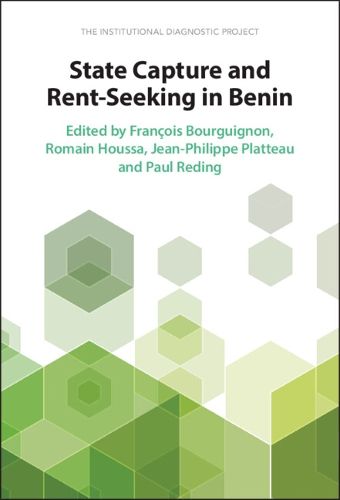Readings Newsletter
Become a Readings Member to make your shopping experience even easier.
Sign in or sign up for free!
You’re not far away from qualifying for FREE standard shipping within Australia
You’ve qualified for FREE standard shipping within Australia
The cart is loading…






Benin is a small, slow-growing economy whose development relies on two sources of rent that are controlled by self-centred elites: cotton export and illegal cross-border trade with Nigeria. Patrimonialism governs Beninese society as a forceful struggle for political power takes place between the oligarchs who control these sources and use them as formidable levers of power. State Capture and Rent-Seeking in Benin argues that this struggle causes the instability and unpredictability of economic policies, resulting in institutional problems that make economic diversification and growth difficult. Based on a thorough account of the economic, social, and political development of Benin, this institutional diagnostic provides a detailed analysis of its critical institution- and development-sensitive areas such as electoral campaign finance, state capture by business and elites, management of the cotton sector, the tax effort, the informal trading between Benin and Nigeria, and the political economy of land reform.
$9.00 standard shipping within Australia
FREE standard shipping within Australia for orders over $100.00
Express & International shipping calculated at checkout
Benin is a small, slow-growing economy whose development relies on two sources of rent that are controlled by self-centred elites: cotton export and illegal cross-border trade with Nigeria. Patrimonialism governs Beninese society as a forceful struggle for political power takes place between the oligarchs who control these sources and use them as formidable levers of power. State Capture and Rent-Seeking in Benin argues that this struggle causes the instability and unpredictability of economic policies, resulting in institutional problems that make economic diversification and growth difficult. Based on a thorough account of the economic, social, and political development of Benin, this institutional diagnostic provides a detailed analysis of its critical institution- and development-sensitive areas such as electoral campaign finance, state capture by business and elites, management of the cotton sector, the tax effort, the informal trading between Benin and Nigeria, and the political economy of land reform.